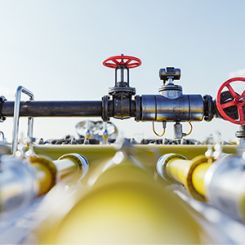
Schneider Electric's Ujwal Sareen answered several questions for Pumps & Systems as it pertains to the state of the industry heading into 2022. Sareen is the business development manager for Schneider Electric's Pump & Compressor Segment.
What needs to happen in regards to industry improvements?
We have seen strong innovation in recent years as digitization and connected products have changed the way pumps and machines operate and the data operators can gain from their operations. As we look to continue improving those operations—both for uptime and energy efficiency—we need to embrace new platforms, like universal automation. By moving past limitations, like vendor lock-in and integration costs, we are able to gain access to new technology and integrate it into our existing operations faster and easier while still managing the bottom line.
What issues have you seen with any material shortages or supply chain issues?
As the Biden Infrastructure Bill approaches approval, the proposed investment of $55B for WWW has the potential to truly change the industry. Supply chain issues pose a threat to future infrastructure projects, just like the challenges we are facing on current projects. Many manufacturers recognize this, making investments in local manufacturing—whether to increase capacity in existing factories or to build new facilities. Schneider Electric, for example, recently announced plans to invest more than $100 million to increase regional capacity, including plans to open three new manufacturing plants in North America.
What industry trends are you seeing as we go into 2022?
Severe weather will still be a challenge across the country. Events like the wildfires in California, the freezing cold in Texas and the bad storms in the East will continue. Pumping will play a key role in addressing this—whether it be to remove sand and debris from storm-flooded facilities in Florida or to bringing in water to vulnerable crops in California and the Midwest. Fortunately, sustainability is a trend that is gaining momentum across the industry as companies look to find efficiency and reducing their energy usage. They are realizing that this makes smart business sense in reducing costs and environmental sense as they reduce their carbon footprint.
What’s on your mind?
While many are focused on the supply chain challenges, there is another important shortage that we are facing around trained industry professionals. As our more experienced colleagues retire, we are facing a deficit of talent. As an industry we need to promote our industry and its career opportunities to the next generation, placing a greater focus on the value of trade schools and the careers and benefits available to those a future in this industry.

